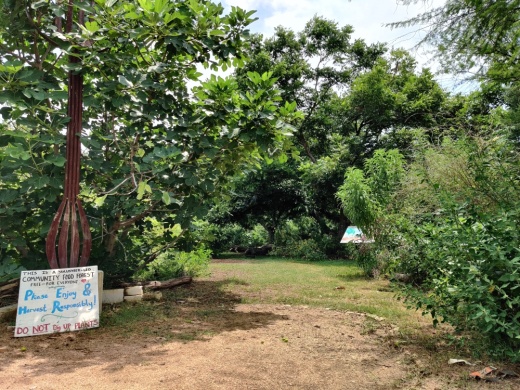City Council on July 29 passed a resolution sponsored by District 3 Council Member Pio Renteria directing City Manager Spencer Cronk to implement the food forest’s expansion plan and update council by Nov. 1. The food forest concept was established through the 2014 passage of the Holly Shores Master Plan, and in the years since the urban community garden has grown to house a variety of plants providing fruits, vegetables and herbs for local residents and organizations.
The food forest is located on around 1 acre of city-owned land in Edward Rendon Sr. Metro Park at Festival Beach, and the city of Austin and nonprofit Fruitful Commons are now planning to see the project extend further across the northwestern portion of the park.
“We were very supportive of [Renteria] doing this resolution because we are working with this group, and they’ve been very, very good to work with, and they’re creating a great use of the park. And we’d like to see the continuation of that,” said Ricardo Soliz, division manager for park planning at the Austin Parks and Recreation Department.
Cynthia Klemmer, a parks department environmental conservation program manager, said the city’s work at the food forest and neighboring Festival Beach Community Garden ensures parkland continues to be used for public benefit. She also highlighted the forest’s role in providing additional produce for the area, including the Serafina Pantry and its work at the neighboring Rebekah Baines Johnson Center, especially given council’s June direction for Cronk to enhance local food systems via city-owned land.
“More recently through the pandemic of course, food production and food security and food injustices have become more widely talked about,” Klemmer said. “Community gardens and food forests are a great way to address food insecurity and food deserts. It’s not necessarily simple because of course it’s a lot harder to grow a tomato than it is to buy one, but it does provide for some local neighborhood access.”
Soliz said the next step on the city’s end will be the finalization of a park management agreement with the food forest’s backers. Fruitful Commons is also awaiting the results of the national Thriving Cities Challenge that could see the food forest earn up to $100,000 for an expansion of operations there if selected as a recipient. The Festival Beach Food Forest is one of 15 finalists in the competition, and winners are expected to be announced by late September.
While the nonprofit awaits those results and plans for the food forest's expansion, the parks department will continue to look at the site's expansion plans and possible new facilities. Klemmer said some components of the food forest growth plan could include a trail connecting the garden area and lakeshore hike and bike trail, outdoor gathering spaces and a teaching kitchen, aspects Renteria also highlighted before the item’s unanimous passage by council.
“This expansion is going to give us the opportunity to have a mobile kitchen set up there on-site to teach our residents and especially our seniors there at Rebekah Baines Johnson how to cook the quality food that we're growing in our garden,” Renteria said. “This is a great opportunity to also expand our programs to teach our young folks the value of nutritious food coming from that food forest and to identify all the different items for our young students that are not aware of healthy eating.”





